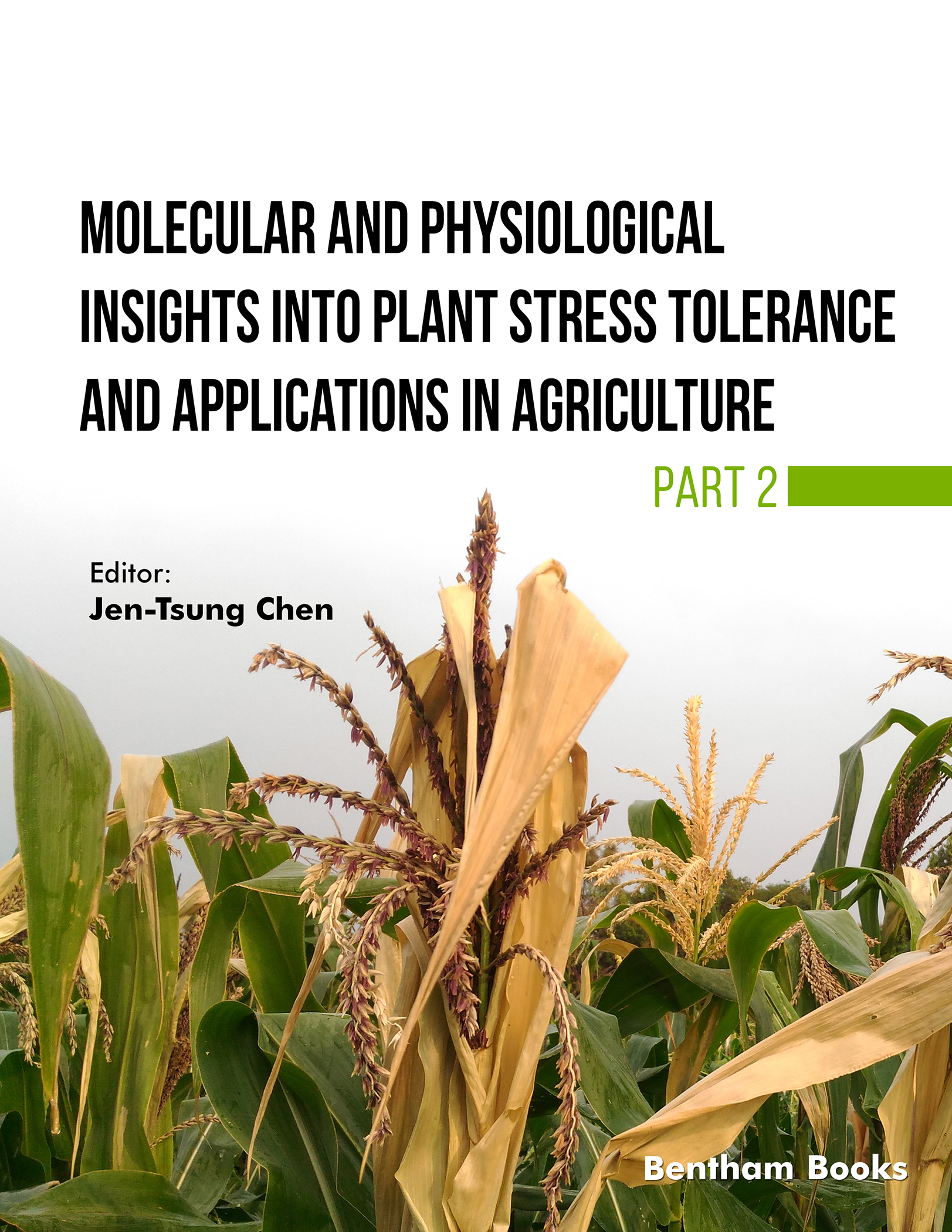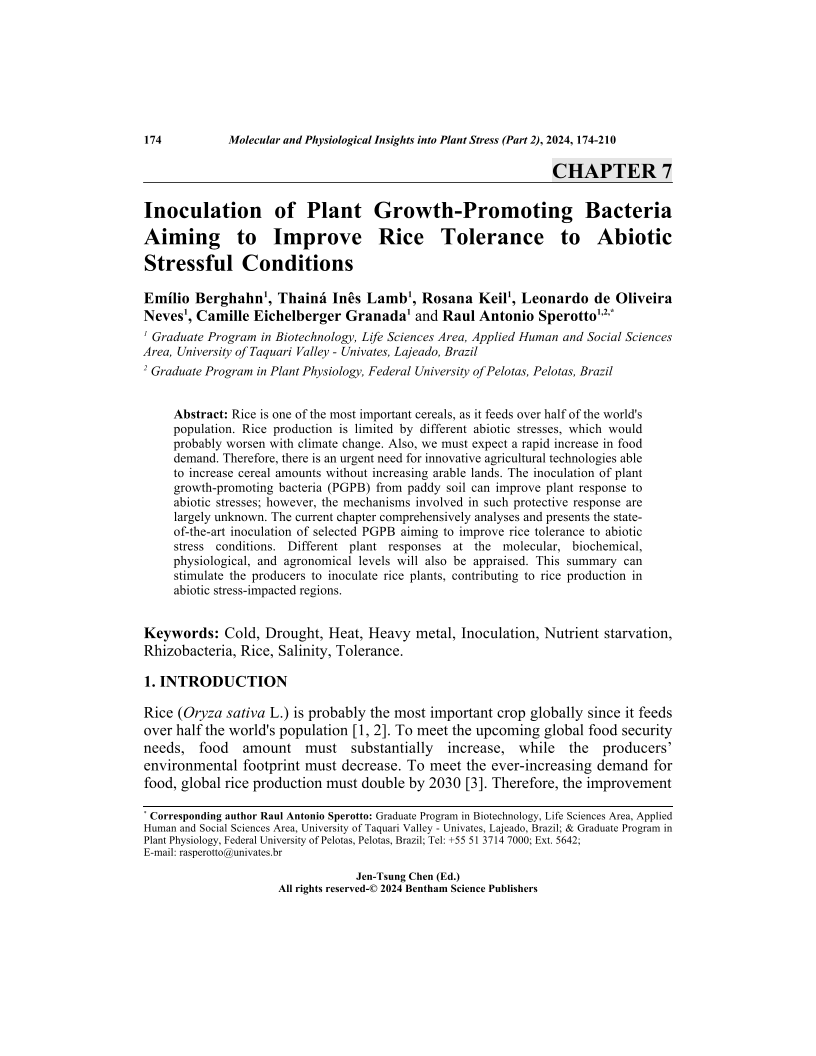Inoculation of Plant Growth-Promoting Bacteria Aiming to Improve Rice Tolerance to Abiotic Stressful Conditions

- Authors: Emílio Berghahn1, Thain Inês Lamb2, Rosana Keil3, Leonardo de Oliveira Neves4, Camille Eichelberger Granada5, Raul Antonio Sperotto6
-
View Affiliations Hide Affiliations1 Graduate Program in Biotechnology, Life Sciences Area, Applied Human and Social Sciences Area, University of Taquari Valley Univates, Lajeado, Brazil 2 Graduate Program in Biotechnology, Life Sciences Area, Applied Human and Social Sciences Area, University of Taquari Valley - Univates, Lajeado, Brazil 3 Graduate Program in Biotechnology, Life Sciences Area, Applied Human and Social Sciences Area, University of Taquari Valley - Univates, Lajeado, Brazil 4 Graduate Program in Biotechnology, Life Sciences Area, Applied Human and Social Sciences Area, University of Taquari Valley - Univates, Lajeado, Brazil 5 Graduate Program in Biotechnology, Life Sciences Area, Applied Human and Social Sciences Area, University of Taquari Valley - Univates, Lajeado, Brazil 6 Graduate Program in Biotechnology, Life Sciences Area, Applied Human and Social Sciences Area, University of Taquari Valley - Univates, Lajeado, Brazil
- Source: Molecular and Physiological Insights into Plant Stress Tolerance and Applications in Agriculture- Part 2 , pp 174-210
- Publication Date: February 2024
- Language: English
Inoculation of Plant Growth-Promoting Bacteria Aiming to Improve Rice Tolerance to Abiotic Stressful Conditions, Page 1 of 1
< Previous page | Next page > /docserver/preview/fulltext/9789815179699/chapter-7-1.gif
Rice is one of the most important cereals, as it feeds over half of the world's population. Rice production is limited by different abiotic stresses, which would probably worsen with climate change. Also, we must expect a rapid increase in food demand. Therefore, there is an urgent need for innovative agricultural technologies able to increase cereal amounts without increasing arable lands. The inoculation of plant growth-promoting bacteria (PGPB) from paddy soil can improve plant response to abiotic stresses; however, the mechanisms involved in such protective response are largely unknown. The current chapter comprehensively analyses and presents the stateof-the-art inoculation of selected PGPB aiming to improve rice tolerance to abiotic stress conditions. Different plant responses at the molecular, biochemical, physiological, and agronomical levels will also be appraised. This summary can stimulate the producers to inoculate rice plants, contributing to rice production in abiotic stress-impacted regions.
-
From This Site
/content/books/9789815179699.chapter-7dcterms_subject,pub_keyword-contentType:Journal -contentType:Figure -contentType:Table -contentType:SupplementaryData105

